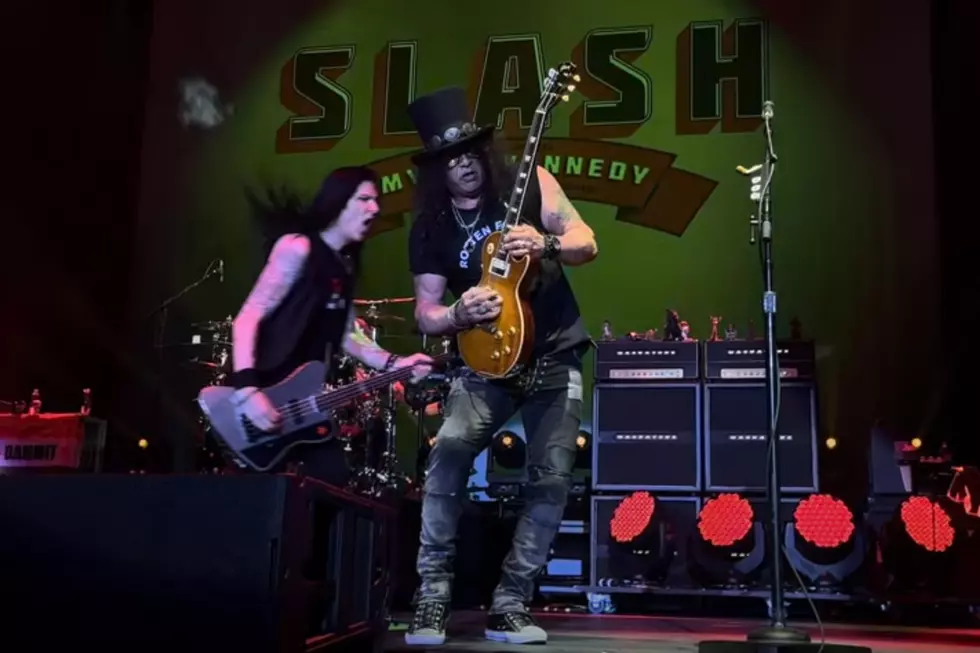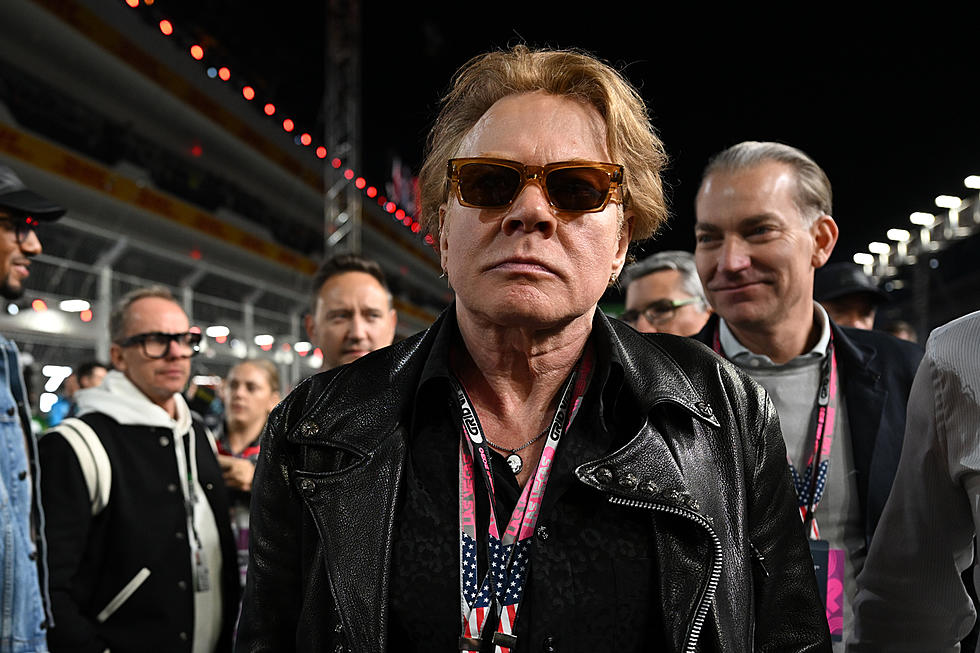Guns N’ Roses’ ‘Mr. Brownstone’ Predicts a Desolate Future: The Story Behind Every ‘Appetite for Destruction’ Song
Written while in the studio recording 1987's Appetite for Destruction, "Mr. Brownstone" describes Guns N' Roses' eventual descent into dope with prescient, excruciating detail.
Izzy Stradlin scratched out an original rough draft while staying in one of the band's flop-house Hollywood hotels; Axl Rose was said to have found the scrap of paper when the band was checking out one day. Slash and Rose then completed "Mr. Brownstone," adding a sadly ironic line at the end which doesn't appear on the lyric sheet: "I shoulda known better; I wish I'd never met her."
Instead, another line from "Mr. Brownstone" – which was said to be named after a favorite dealer – more accurately describes what eventually happened, as several band members began pitched struggles with drugs: "I used to do a little, but a little wouldn't do it. So, the little got more and more."
Steven Adler would reportedly suffer some 28 overdoses, along with two heart attacks and a stroke. Stradlin once went into a 96-hour drug-fueled coma. Duff McKagan's damaged pancreas grew to the size of a football. Slash spent decades in and out of rehab before finally kicking heroin.
Things got so bad that "Mr. Brownstone" became something else entirely in 1989: A warning shot across the bow. Rose referenced this song specifically during an Oct. 18 opening gig for the Rolling Stones, in a desperate attempt to get the others to clean up their act.
“I hate to do this on stage,” Rose told fans at the Los Angeles Coliseum, “but I tried every other f---ing way. And unless certain people in this band get their s--- together, these will be the last Guns N’ Roses shows you’ll f---ing ever see. 'Cause I’m tired of too many people in this organization dancing with Mr. Goddamn Brownstone.”
Years before, Guns N' Roses' every-day decadence still seemed to be working in their favor – both in terms of their bad-boy image, and on danger-filled tracks like "Mr. Brownstone." This was the initial song completed after they signed a deal with Geffen, and "Mr. Brownstone" – which Rose sang over a bed of angular, blues-soaked riffs – later became Guns N' Roses' first international single.
Adler's Bo Diddley-inspired beat gave the track its racing heartbeat. "He's a huge hero of mine," Slash later said of Diddley, in a talk with NME. "Bo Diddley created a myth that was uniquely his own. An entire rhythm is owed to just one guy, and that’s pretty rare."
The band soldiered on after the L.A. meltdown. Soon, however, "Mr. Brownstone" began to feel like something of an albatross. Rose made a point of distancing himself from this song, adding personalized comments before each performance.
"Some people think I'm condoning heroin," Rose remembered in Watch You Bleed: The Saga of Guns N' Roses. "We did this one show, and they were throwing needles on stage. So, now I do my little thing about how it's your responsibility to actually wake up the next morning. I don't rehearse this or anything; I always do it a little differently. I show them where I'm coming from."
His long-ago on-stage tirade, however, would not soon be forgotten. Guns N' Roses eventually sobered up – even the troubled Adler, who had the most difficulty kicking drugs – but by then Rose had become the lineup's lone-remaining classic-era member. "I knew it was directed at me, because I was real strung out at the time," Slash told VH-1. "But it was probably one of the things that made me hate Axl more than anything."
McKagan went further, saying Rose's comments specifically precipitated a split that lasted from the late '90s through 2016.
"I shrank; I was so f---ing embarrassed," McKagan said in It's So Easy and Other Lies. "Once Axl took his concerns public, the times of being a gang – us against the world – were over. We played the rest of the show, but it was a half-hearted effort at best. Afterward, and really for the remainder of our career, we just went our separate ways. That night officially rang the bell for the end of an era in GNR."
20 Most Historic Guns N' Roses Concerts
More From Ultimate Classic Rock









